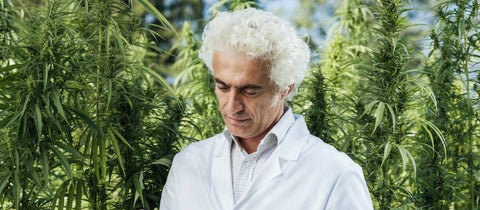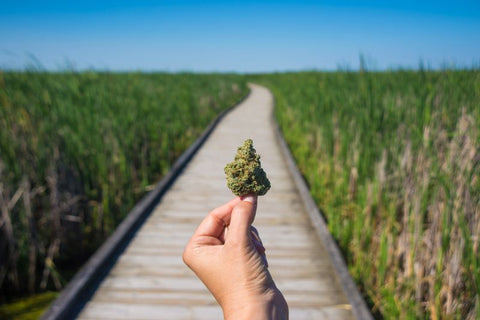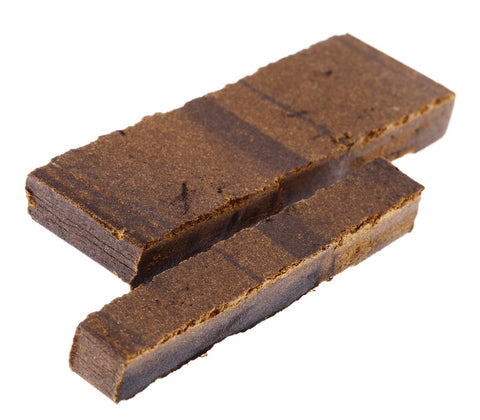Before adding CBD—or anything else—to your list of dietary supplements, it’s important to know exactly what you’re getting into. People new to CBD oil usually have a lot of questions, and one of the most common has to do with THC content.
How much THC is in CBD oil? The answer varies depending on several factors. Different countries enforce different rules about how much THC CBD products can legally contain. Moreover, CBD oil derived from marijuana inherently features much higher THC levels than CBD oil derived from industrial hemp.
We’ll cover all of that here, maintaining a focus on CBD oil sold in the UK.
CBD and THC explained
CBD and THC are cannabinoids, which are naturally occurring chemical compounds found in the cannabis plant. Of the scores of cannabinoids that exist, CBD and THC are the best known and most significant. They’re largely responsible for cannabis’ effects, including its various health benefits.
Speaking of effects, it’s critical to note that THC, and THC alone, is responsible for the ‘high’ you feel after ingesting marijuana.
CBD does not have psychoactive effects, meaning it does not cause intoxication—even at very high doses. So if you were worried about CBD oil potentially impairing your ability to drive, work, etc., you can put that concern to rest.
That’s the principal difference between these two cannabinoids: THC makes you high and CBD does not. Thus you can buy CBD oil over the counter while THC remains illegal without a prescription.
How much THC is in CBD products sold in the UK?
The amount of THC in CBD oil is dictated by the government. Under UK law CBD products are allowed to contain trace amounts of THC—specifically 0.2% or less. That’s far too low to have any psychoactive effects, but that doesn’t mean it serves no purpose (more on which later).
Hemp-derived CBD products
Now, how do growers and manufacturers ensure that CBD products don’t run afoul of the 0.2% THC requirement? By using industrial hemp.
Along with marijuana, hemp is one of the main varieties of the cannabis sativa plant. But unlike marijuana, famous for its high THC levels, hemp contains only a minute amount of the stuff.
As a result, you’ll find that CBD products sold on the UK market are all derived from government-approved strains of hemp. This keeps the THC content within the legal boundary so that you can purchase, consume, and travel with CBD oil without anxiety.
Why does CBD oil contain THC anyway?
Not all CBD oils contain THC. Broad spectrum CBD oil, for example, is advertised as having no THC at all. But it’s full spectrum products that have begun to dominate the CBD market.
As the name indicates, full spectrum CBD oil contains the full scope of essential cannabis compounds, namely cannabinoids, terpenes, flavanoids & even negligible traces of THC. To understand the growing demand for full spectrum products, we must first explore the phenomenon known as the entourage effect.
The entourage effect
By now, most if not all cannabis users are familiar with the entourage effect. It refers to the synergistic relationship between cannabis’ primary components. These constituents complement and supplement each other, enhancing the plant’s beneficial effects.
CBD has therapeutic properties on its own; the point is that said properties are heightened when CBD is allowed to interact with these other cannabis ingredients. The result is a better overall effect for the consumer. Hence the surging popularity of full spectrum CBD products.
The difference between full spectrum and broad spectrum CBD
Full spectrum and broad spectrum CBD oil are similar: both contain CBD and a number of other natural chemicals found in cannabis. They differ in their THC levels. As noted, full spectrum CBD has trace amounts of THC (maximum 0.2%). Broad spectrum CBD does not contain any THC.
So while full spectrum and broad spectrum CBD both take advantage of the entourage effect, full spectrum CBD does so to a greater extent by including THC.
THC and drug tests
Drug tests don’t screen for CBD; even if they did it wouldn’t matter, as CBD is legal. But what about THC? Should you worry about it showing up on a test?
Because full spectrum CBD oil contains no more than 0.2% THC, you generally don’t have to worry about it triggering a positive drug test. I say generally because there are a couple of caveats & everyone's endocannabinoid system is different so it still remains entirely possible to test positive, depending on the test used.
Tests at work? Play it safe instead
With that said, if there's even a remote chance you could lose your job by testing positive at work, why risk it? Instead of full-spectrum products like our CBD Hash or Hemp Flower go for a broad spectrum CBD oil and play it safe.
Know exactly what's in your CBD
In spite of increasing government regulations, the CBD market is crowded by dubious and inferior products. The importance of buying from an established company with a good reputation can’t be overstated. Otherwise, there’s no way to determine what you’re actually consuming.
A trustworthy company will be able to provide you with verified third-party lab results showing the precise quantity of each ingredient.



